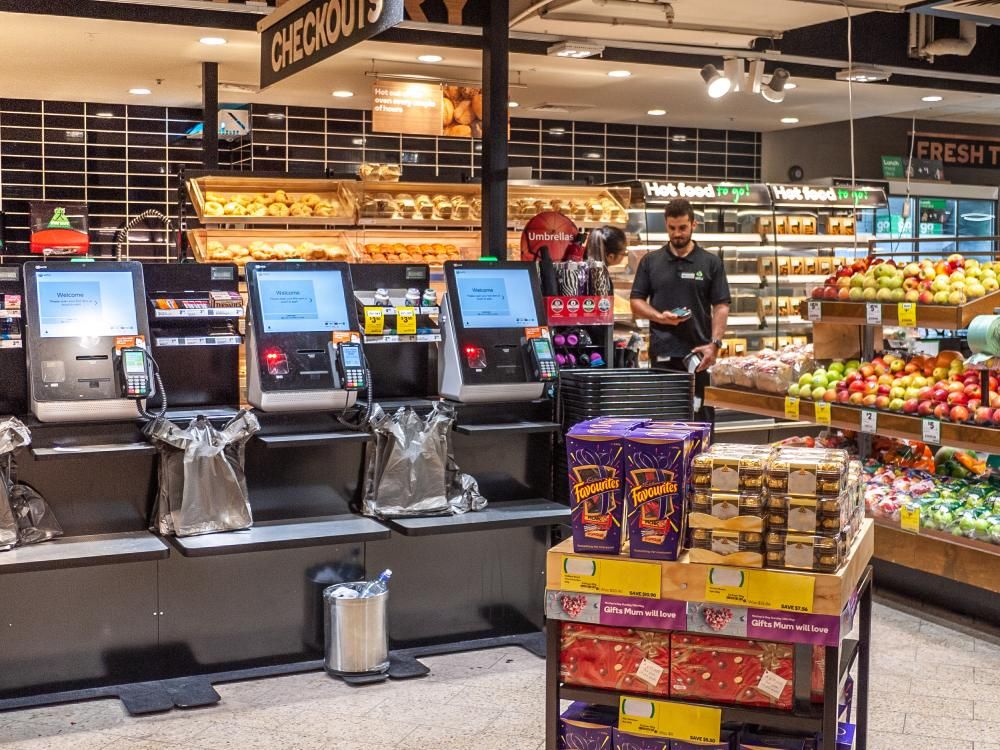
Retail CRM: key capabilities & implementation best practices
September 2, 2021
- Home
- CRM services
- Retail

Head of Salesforce Practice
We implement CRM software solutions tailored to the retail sector that consolidate customer data in a single platform, connect sales, marketing, and service teams, and promote collaboration and higher productivity across offline and digital channels.
The state of the retail CRM market
Scheme title: How sales reps spend their time during an average week
Data source: salesforce.com — The State of Sales report, fifth edition
88%
of customers agree CX is as important as products or services
Salesforce
$157.53 bn
the projected global CRM market value by 2030
Fortune Business Insights
Build stronger customer relationships with a retail CRM
Key retail CRM capabilities
Many customer relationship management solutions are equipped with features designed specifically for the retail industry. An effective CRM usually offers the following capabilities:
Contact management
Lead management
Appointment scheduling
Customer-oriented features
Customer database
Marketing automation
In-store experience management
Loyalty programs
Customer service
Communication tools
Real-time data exchange
Collaboration tools
Omnichannel enablement
Retail CRM
Omnichannel customer engagement
By syncing the CRM with your point-of-sale system, ecommerce website, social media, and mobile app, you can leverage comprehensive customer data to create consistent customer experiences across all channels.
Omnichannel customer service
Omnichannel marketing
Customer data aggregation
Retailers can integrate their CRM software with other enterprise applications to unify data capture and processing and create a holistic customer view for all teams.
Social media platforms
Texting apps
Live chats
Email marketing tools
Reports
Intelligent analytics
Custom vs platform-based retail CRMs
Opting for a custom-made or out-of-the-box CRM will define the capabilities, customization potential, and TCO of your CRM solution. We recommend our clients carefully consider both variants to find the best option for their needs.
Custom CRM
Off-the-shelf
Availability for use
Availability for use
Developing a custom CRM is time-consuming, so it can take months till retailers can start using their CRM.
Off-the-shelf solutions are almost immediately available for installation and require minimum customization, resulting in faster implementation.
Features
Features
Tailored to your requirements, business specifics, and existing technology tools. Can be easily tweaked to fit your current retail strategy better.
Most CRMs offer plenty of essential ready-to-use features. Doesn’t always perfectly align with unique requirements. Some out-of-the-box functionality can be excessive, but you still pay for it. Free trial often available.
Security
Security
Custom-made solutions can have unique code or configurations, so no malicious agent can know in advance about the security mechanisms used in your CRM, which minimizes the risk of cyber attacks and increases the security level.
Retailers rely on CRM providers to implement effective security measures. Since out-of-the-box platforms have more visibility and malicious agents can analyze them for code vulnerabilities, the likelihood of a successful attack increases.
Costs
Costs
Higher upfront costs. Maintenance and support costs. Update or upgrade costs.
Monthly or annual software license fees. Additional costs for third-party app integrations. Long-term TCO can be higher due to per-user costs increasing as your business grows.
Integration
Integration
Software developers can tailor a CRM to your specific business needs and seamlessly integrate your new solution into the retail environment.
Usually, prebuilt integrations with the most popular apps are available to cover major business needs. Some providers offer APIs and connectors for integration. Compatibility issues can emerge when connecting your legacy solutions with an off-the-shelf CRM.
Updates
Updates
On-demand updates and upgrades.
CRM providers update the platforms and add new functionality following their own schedules. Providers can stop updating their CRM or even discontinue the product.
Scalability
Scalability
When building a CRM system from scratch, software developers can design an architecture that will allow for further growth and changes in your business.
Limited scalability beyond the predefined scope.
Support & maintenance
Support & maintenance
The CRM owner is responsible for keeping the software working correctly.
Providers take care of maintenance and typically provide support via multiple channels.
Top retail CRM platforms on the market
Salesforce
A cloud-based low-code CRM platform, Salesforce Customer 360 is a suite of integrated modules that provides a unified view of the customer across different apps and teams. Salesforce’s AI-powered insights help retailers personalize customer experiences, boost workforce productivity, and make better business decisions.
- Real-time customer profile updates
- Advanced customer segmentation
- Lead, opportunity, and pipeline management
- Customer journey analytics
- Loyalty management
- AI-powered automation
- Next best action suggestions
- Customer and Partner portals
- AppExchange store with extensions and integration packages
- Mobile interface
Odoo CRM
Odoo is a suite of open-source apps and plugins that offers a comprehensive CRM module designed to manage customers and prospects and organize the sales process. Flexible and customizable, Odoo CRM can be easily integrated with other Odoo apps to enable real-time data sharing, save time, and boost cross-team efficiency.
- Drag-and-drop sales pipeline management
- Lead tracking and nurturing
- Marketing, service, and sales workflow automation
- Real-time collaboration
- Experience analytics
- Real-time shareable reports and visualization
- Self-service portals
- Mobile interface
Microsoft Dynamics 365 CRM
Available as a cloud-based or on-premises solution, Microsoft Dynamics 365 is a collection of integrated business applications that can be used alone or together by marketing, sales, customer service, field service, and project service automation teams. The platform helps retailers get more visibility into customers’ needs, personalize service experiences, and elevate employee effectiveness.
- Automated insights based on individual or collective pipeline analysis
- Customer intent prediction
- Customer journey orchestration
- Omnichannel customer communication
- At-risk account recommendations
- Intelligent conversational bots
- Sentiment-based case routing
- Real-time KPI tracking and analytics dashboards
Zoho CRM
Zoho CRM is a robust cloud platform with sales and customer service capabilities that help simplify sales workflows, streamline employee and partner collaboration, and enhance customer experience. The platform features the industry's first drag-and-drop CRM design studio that enables retailers to format and customize the solution to their liking for better user adoption.
- Lead, deal, contact, and account management automation
- Conversational AI assistant for sales prediction, anomaly detection, and workflow suggestions
- Omnichannel selling enablement
- Multi-dimensional standard and custom reports with filtering options
- Customer journey orchestration
- Marketing automation, attribution, and analysis
- In-built inventory management
- Integration with popular help desk and customer success platforms
Hubspot
A SaaS platform, HubSpot CRM consists of marketing, sales, content management, and customer service hubs united into a single cloud-based CRM platform connecting disparate business teams. It provides tools to engage customers at every buyer journey stage, automate routine administrative tasks, maximize teams’ efficiency, and get full visibility into retail operations.
- Prospect and deal tracking
- Data synchronization and data quality management
- Email marketing tools, such as an email template builder and tracking software
- Built-in payment processing tools
- Help desk and ticketing feature enabling personalized customer support
- Customizable high-level and specific dashboards
- Automated task creation, task queues, and deadline management
- Automatic population of new contacts, companies, and deal records with details from HubSpot’s database
Need a reliable tech partner to implement a retail CRM?
Our CRM services
Itransition provides a suite of CRM services for retailers, from refining a CRM strategy to fine-tuning an existing CRM solution to match your current requirements.
We help retail companies of any size and niche develop a tailored CRM strategy, select optimal CRM software, design efficient workflows, and facilitate the solution’s adoption. We can detect gaps in your existing system, develop an actionable remedy plan, and outline growth opportunities.
We implement retail CRMs with customer-centricity in mind, giving you the most relevant tools to better understand your target audience and craft engaging, personalized customer experiences. Our team connects the new solution with your digital channels and other business software to create a coherent retail ecosystem with secure and smooth data exchange.
Customization
Our specialists can optimize your CRM, configure necessary modules and features, and modify the user interface to adjust it to your needs. We can also customize business management settings to adapt them to your company’s structure and set up custom user roles and permissions to improve data security and compliance.
Why adopt a retail CRM
Retail CRM software improves various operations and brings multiple benefits to both businesses and customers.
For retailers
A comprehensive data source
Retail CRMs collect vast amounts of granular data on customers, sales, marketing, and performance, helping retailers understand customers better, enhance customer relationships, make informed decisions, and improve business outcomes.
Stronger customer relationships
Enabling merchants to provide relevant offers and streamline customer service, retail CRM software helps increase customer satisfaction, cultivate customer loyalty, and encourage repeat sales.
Increased productivity
CRMs automate retail workflows, centralize data, provide valuable insights, and facilitate cross-team communication, thus allowing sales and marketing teams to manage tasks more efficiently, make better decisions, and identify areas for improvement.
Reduced costs
With CRM-powered task automation and retail management optimization, businesses spend less time on non-selling activities. In addition, retail CRMs help identify and nurture high-value customers, helping companies retain existing customers and cut the cost of acquiring new ones.
For customers
Personalized experiences
With CRM, retailers can create memorable shopping experiences and tailor buying journeys to each customer by suggesting products that are likely to appeal to them, offering personalized in-store assistance and sending relevant promotions.
Better customer service
Retail CRM solutions remove data silos between sales and customer service teams, allowing them to be on the same page regarding a customer’s purchase history and previous interactions, resolve issues faster, and prevent further complaints.
Higher satisfaction
A 360-degree customer view provided by CRM improves the quality of a retailer’s interactions with customers. Businesses can anticipate customers’ needs, provide customized offers that resonate with individuals, and make each client feel valued.
Guidelines for successful retail CRM adoption
Retail businesses should take the following steps to make the most of their retail CRM solution and maximize the ROI from implementing it.
1
Pick out necessary features
Make a list of features you want in your retail CRM and share it with the CRM implementation team before they get to work. Select features that meet your immediate needs and align with your long-term business objectives; you can disregard functionalities that seem nice to have, but your teams are unlikely to use. This way, you can avoid unreasonable expenses and maximize the value of your CRM investment.
2
Set access permissions
In addition to breaking down your CRM system into dedicated modules for sales, marketing, and customer service departments, assign specific roles and permissions to separate teams or individual employees and restrict the access to specific information or features. This can prevent data breaches, improve accountability, and eliminate confusion in workflows.
3
Provide for scaling-up
As your retail business grows, your CRM will need additional capacity to accommodate more users, data, and connections. When planning an initial CRM solution, choose a platform with a high potential for vertical and horizontal scalability in line with your business's growth plans. The platform should demonstrate stable performance without detrimental system slowdowns.
4
Support the staff
A transition to new CRM software can arouse resistance in your employees. Therefore, clearly point out the benefits of retail CRM software to your staff before implementation, explain how it will improve day-to-day activities, and gather suggestions regarding functionality and processes from each team. After the implementation, provide in-depth CRM training to help employees get used to the solution, master all its features, and acquire new work habits. This will help employees to adopt the CRM faster and use it to its full potential.
Transform in-store customer experiences with a retail CRM

Insights
CRM vs ERP: which one you need?
Learn the difference between CRM and ERP systems and find out whether your business needs a CRM, an ERP, or both.

Insights
Why low-code CRM customization gains ground
Learn why low-code CRM customization is a number-one choice for SMBs and enterprises alike and what benefits and problems adopters may get when opting for it.

Insights
Collaborative CRM for the remote-working world
Find out why collaborative CRM became a game-changer in the work-from-home reality and learn about its major advantages and features.

Insights
Retail automation—a new survival kit?
Find out why retail automation is now a must-have and analyze your business potential for automation.

Case study
Salesforce CRM for a US insurance buyout agency
Learn how Itransition’s customized Salesforce CRM has brought a US insurance buyout agency 54% more leads.

Insights
Ecommerce personalization: tactics, examples, and adoption guide
Personalization in ecommerce is indispensable today. Explore powerful tactics for creating unique customer experiences and get practical implementation tips.

Case study
Salesforce CRM implementation for a real estate company
Learn about Salesforce CRM implementation that helped a large real estate company increase their sales by 15% and shorten their sales cycle by 10%.